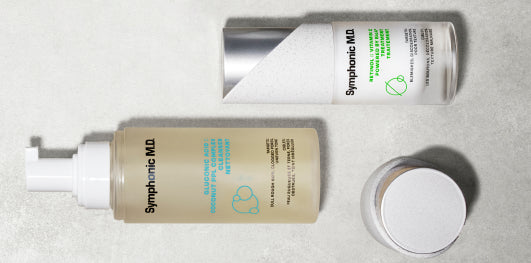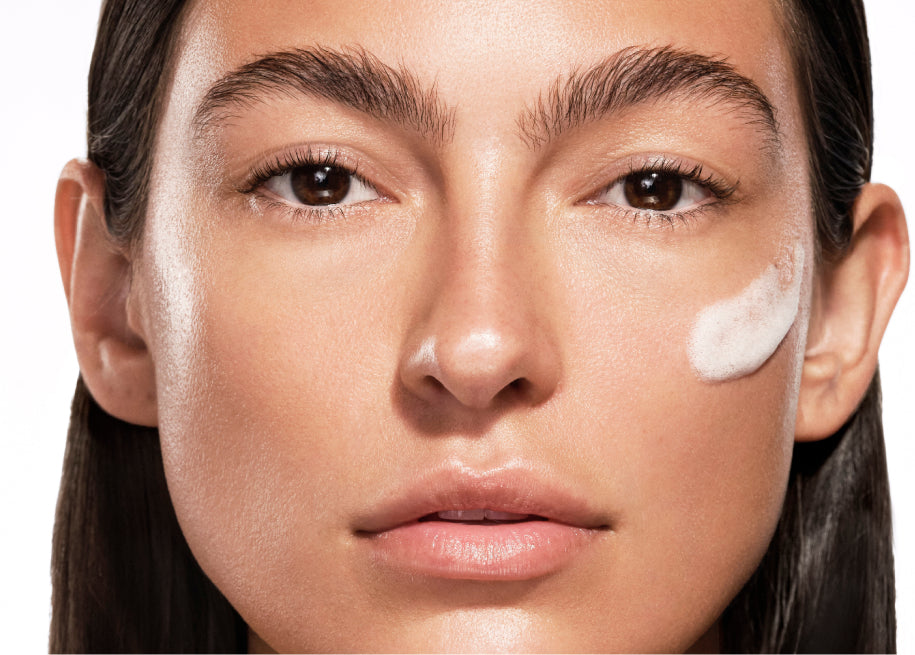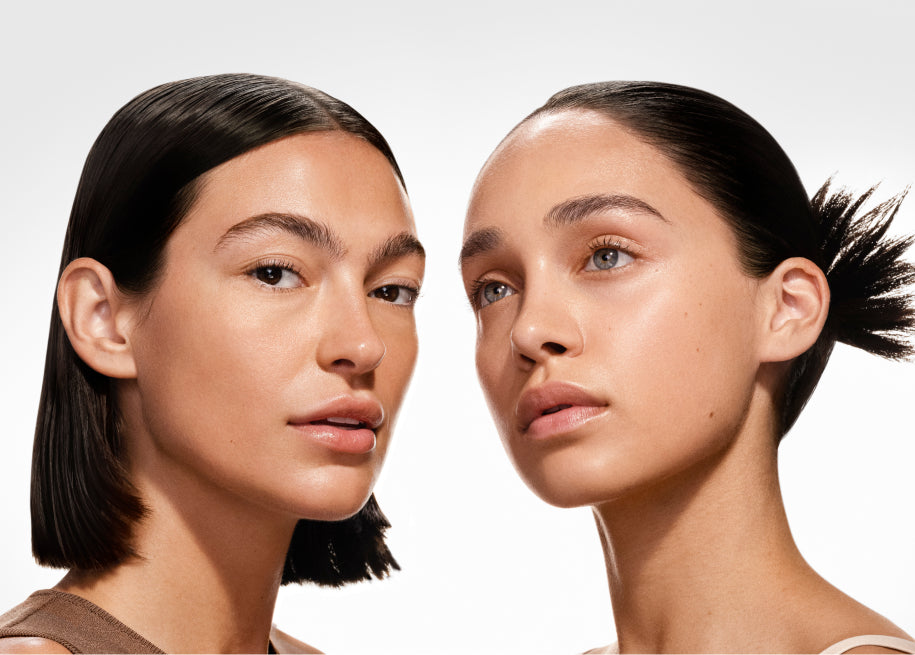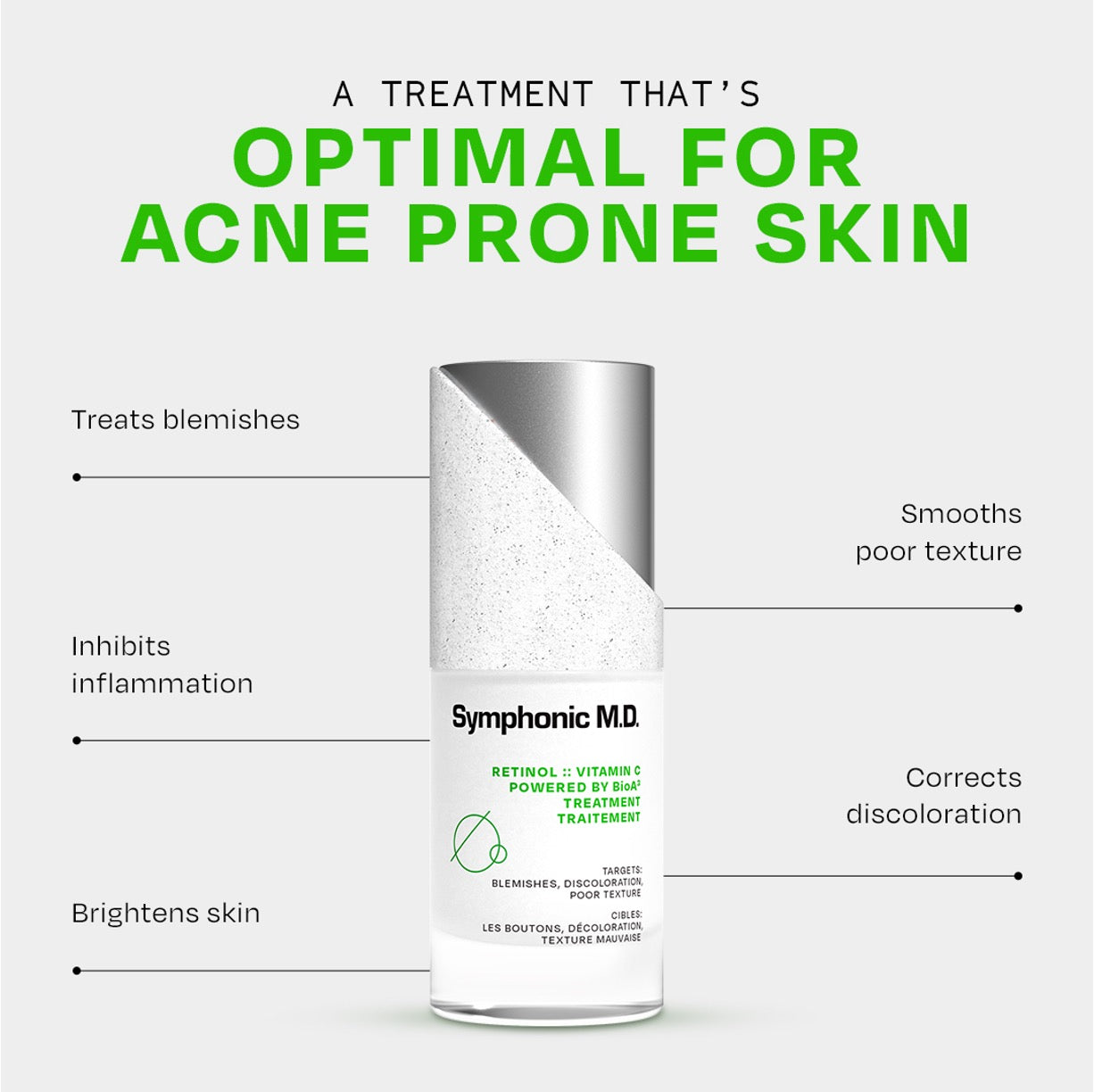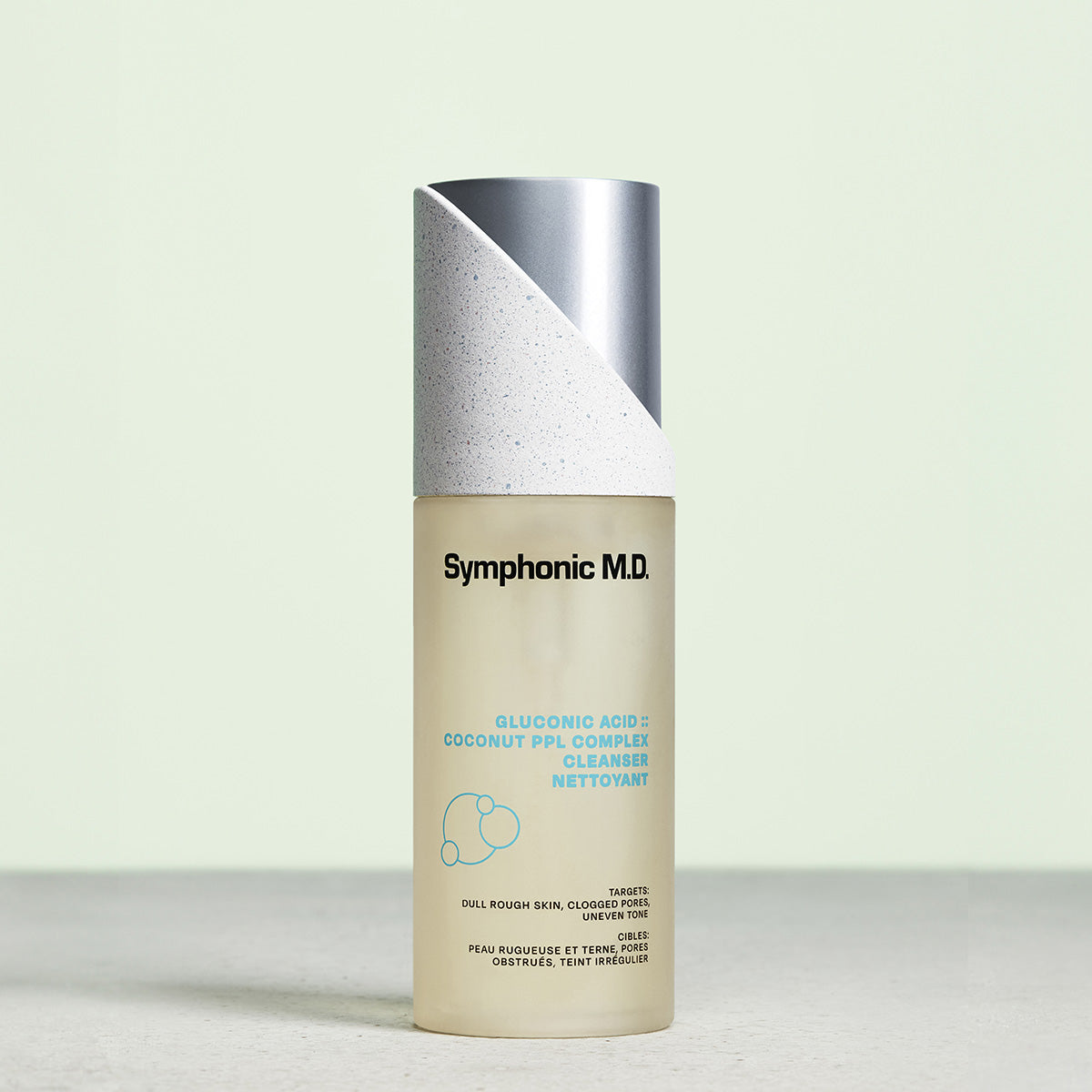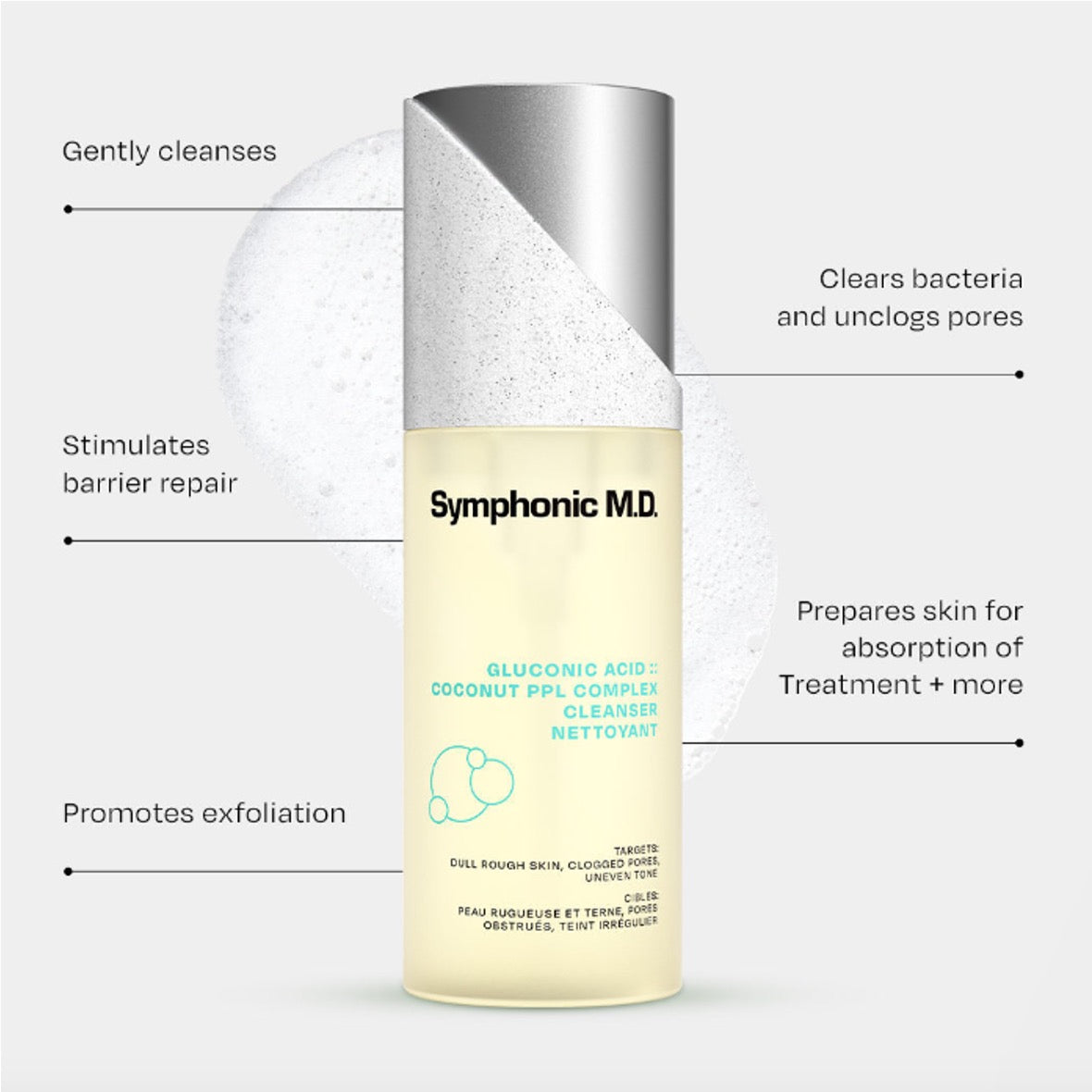Everyone knows that vitamin C helps keep you healthy — but it's also a vital ingredient in your skincare routine. We're taking a look at this amazing antioxidant, how it works, and how to use it.
What is vitamin C?
Vitamin C is found in many different plants, especially citrus fruits and leafy green vegetables. It's water-soluble, so it can spread throughout your body's tissue, keeping it healthy.
However, even though vitamin C is the most plentiful antioxidant in the human body, our bodies are actually quite bad at making or storing it. That's why you need to eat your fruit and veg (and maybe supplements), every single day.
Skincare products use vitamin C differently. Instead of eating it, you apply it topically to specific areas of skin. It's scientifically proven to support skin health and appearance.
Vitamin C is found in many different plants, especially citrus fruits and leafy green vegetables.
Is vitamin C cream good for your face?
The short answer is - YES! Using vitamin C creams for the face is beloved by dermatologists. They are highly effective, easily available, and help your skin in multiple ways, from boosting hydration to fighting free radicals and reversing signs of aging.
What does vitamin C cream do for your face?
Vitamin C can improve both your skin's health and its appearance. It works on the surface and on a cellular level. Here are just the top 8 benefits of using vitamin C cream on your face.
Hydration
Dry skin is one of the most common skin concerns, and it can be caused by many different things: age, pollution, cold weather, and conditions like eczema.
Vitamin C helps dry skin by improving the skin's barrier function. When the barrier is working effectively, it keeps moisture in — and bacteria out.
Skin brightening
As you age, your skin becomes duller-looking. That happens for several reasons: fewer key nutrients, dryness, and a build-up of dead skin cells.
Skincare products with vitamin C can help by retaining moisture and replenishing nutrients, they can even reduce dark spots from aging or sun damage.
Collagen production
Collagen is one of the essential proteins in your skin. It's the ingredient that makes your skin firm, resilient, and plump.
Vitamin C stimulates your body to produce more collagen. It can also help maintain the collagen that's already in your skin so that it doesn't get damaged or depleted.
Anti-wrinkle and anti-aging properties
Vitamin C creams can improve the appearance of facial wrinkles and fine lines. They work by boosting the collagen in your skin, while protecting the skin's surface from environmental damage.
Concerned about increasing wrinkles? Feeling the effects of stress on your skin? Explore the connection between stress and wrinkles and discover if stress is behind those lines, as well as how to prevent them in our guide: Does Stress Cause Wrinkles?
Improved skin tone
Wrinkles and lines aren't the only signs of aging. Dark spots, hyperpigmentation, and uneven skin tone can also make skin look older.
Creams containing vitamin C can fade sun spots, age spots, and even acne scars. Best of all, it's gentle enough to use on all skin types, including acne-prone skin.
Helps address eye concerns
The skin around your eyes is some of the most fragile skin on your body. That means it's especially prone to wrinkles, lines, and spots. You can use topical vitamin C products to target these concerns and brighten the skin around your eyes.
Protection against environmental damage
You can't see it, but your skin is constantly under attack from the world around it. UV radiation, pollution, and other free radical molecules bombard your skin every second of the day. When they build up on your skin, they can damage its collagen and elastin levels.
Vitamin C is a key weapon in that fight. It's an antioxidant, which means that it finds free radicals and stops them from damaging skin.
Sun protection
Vitamin C can work alongside sunscreen to give you even more effective protection from sun damage and UV rays. Since it also reduces redness, it can be combined with other topical ingredients like ferulic acid and vitamin E to reduce the impact if you do accidentally miss a sunscreen top-up.

Adding vitamin C cream to your skincare routine
Adding vitamin C to your facial skincare routine is like adding any other product: first, you need to test it out.
Start by patch-testing a small amount of a low-concentration product somewhere inconspicuous, like the inside of your forearm.
A mild tingling feeling is normal, but you shouldn't experience any redness, irritation, or itching. So long as there's no adverse reaction, you can start adding a little vitamin C to your routine every other day. If you have dry or sensitive skin, you might need to take this process a little slower.
Over time, you can build up to daily applications and stronger products. You'll also be able to see how vitamin C interacts with other ingredients in your routine.
When exactly you use vitamin C in your routine depends on what kind of product you choose. For example, a vitamin C cream should be applied at the end of your routine — after cleansing and serums. A vitamin C serum should be followed up with a moisturizer afterward.
Want to learn more about skincare products with active ingredients? Ever come across the term cosmeceuticals? Delve into our guide What Are Cosmeceuticals? to get all the details.
How to use vitamin C cream for the face
Vitamin C cream can be a deeply effective addition to your skincare routine — moisturizing, soothing, and brightening skin all at once.
Follow these tips to get the best results:
- Start your skincare routine with a gentle cleanser so that the vitamin C can best reach your skin.
- Follow up the cleanser with other products such as toner and serums, once you've made sure that they interact well with vitamin C.
- Finally, apply vitamin C cream. Gently rub the cream in circular motions over your entire face, neck, and décolletage.
- If you use vitamin C in your morning routine, follow it up with a broad-spectrum SPF sunscreen.
A vitamin C cream should be applied at the end of your routine — after cleansing and serums. A vitamin C serum should be followed up with a moisturizer afterward.
Ingredients to avoid when using vitamin C cream
Most skincare products are fine to use alongside vitamin C cream. However, there are a few skincare ingredients which can cause irritation or reduce vitamin C's effectiveness.
If you're using a vitamin C cream for the face, avoid products which contain these ingredients:
- Alpha Hydroxy Acids (AHAs): Lactic Acid, Malic Acid, Glycolic Acid, Citric Acid, Tartaric Acid
- Beta Hydroxy Acids (BHAs): Tropic Acid, Betaine Salicylate, Salix Acid
- Salicylic Acid
- Benzoyl Peroxide
- Retinol
There is one exception to this list. Until recently, retinol and vitamin C were too strong to be combined in a single product. But our latest research shows that has changed.
Our new Retinol :: Vitamin C moisturizer is a deeply hydrating cream which combines the best of vitamin C and retinol to unclog pores, smooth skin, and treat blemishes. It produced no side effects in trials, proving that it's safe and effective for regular use.
Although it's gentle enough for regular use — it gives you the full power of both ingredients.
This anti-inflammatory serum powered by BioA3 targets blemishes, tone, and texture — helping to clear bacteria and smooth skin without clogging pores.
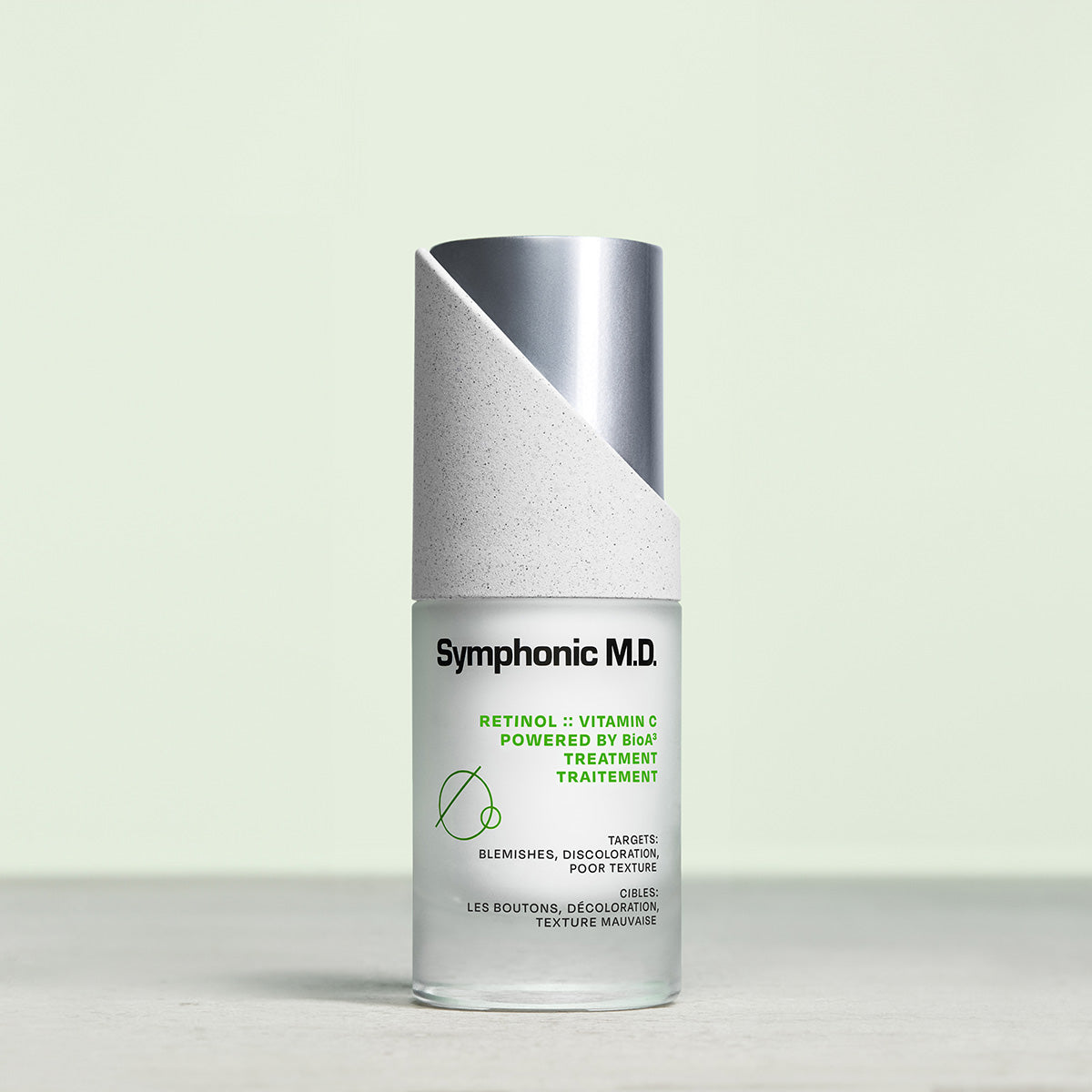
Retinol :: Vitamin C
Who should use Vitamin C cream on their face?
The best thing about vitamin C is that almost anyone can use it. It works for all skin types, including sensitive skin. It's effective against a wide range of skin concerns, from sunburn to aging, hyperpigmentation, wrinkles, dryness, and uneven skin tone. Even if you don't have specific concerns yet, it's an excellent preventative.

Who shouldn’t use vitamin C cream on their face?
All the skincare studies about vitamin C have been tested in adults, so we can't recommend vitamin C for children as it's never been tested.
If you have sensitive, dry, or irritated skin, then you should always patch-test new products before applying them to your face — including vitamin C creams. However, most people find that they can use it without any problems.
What are potential side effects of vitamin C cream?
Vitamin C cream is generally considered very safe. However, there are potential side effects that you might experience, including itching, redness, irritation, tingling, and burning.
The best way to avoid side effects is to start with a small amount of a low-concentration product. You can slowly build up your usage if your skin responds well.
The bottom line
Vitamin C is an essential ingredient in modern skincare. It prevents and targets a long list of skin concerns, including aging, sun damage, uneven skin tone, and dryness. It can be even more effective in combination with some other active ingredients, such as our Retinol :: Vitamin C moisturizer.

